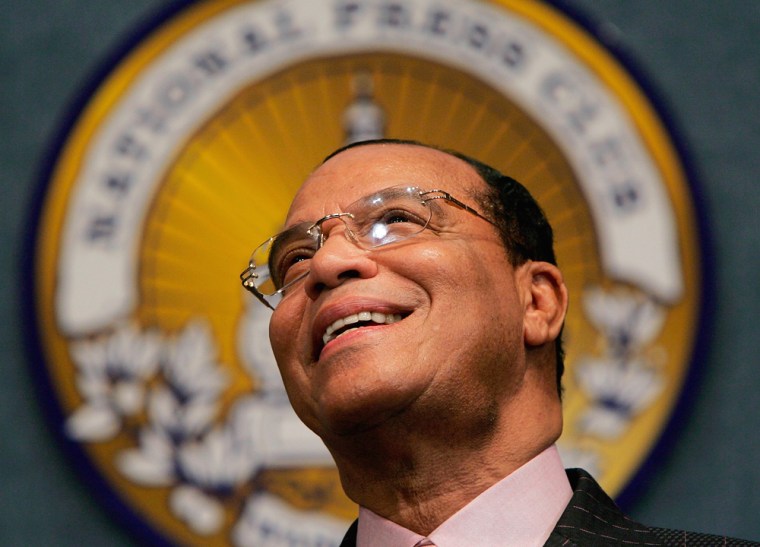Nation of Islam leader Louis Farrakhan says he wants this weekend’s gathering on the National Mall to be the start of a long-range movement to empower minorities, not just a one-day event.
Dubbed the Millions More Movement, Saturday’s event marks the 10th anniversary of the Million Man March.
“We’re tired of begging others to do for us what we have the capacity to pool our resources — intellectually and financially — to do for ourselves,” Farrakhan said Thursday at the National Press Club. “We will make demands from our government, but we know those demands will fall on deaf ears unless and until we are mobilized, sensitized and extremely organized.”
The Million Man March in 1995 was criticized for excluding women; this year’s rally will include women. Much of the emphasis will be on Hurricane Katrina and the many poor, black residents of New Orleans whose lives were shattered by it.
No stranger to controversy
Farrakhan has long stirred controversy, most recently with comments that the levees that failed in New Orleans were bombed to destroy black neighborhoods. He only slightly softened his tone Thursday, saying his comments were meant to spur discussion and an investigation.
“To stop a rumor — if it is just a rumor — the Quran teaches us that we should take that rumor to those who are best qualified to search out the truth or falsity of the rumor,” he said.
Farrakhan is seen as a divisive figure by some. Last spring, Abraham Foxman, director of the Anti-Defamation League, a group organized to combat anti-Semitism, urged other black leaders to separate their cause from Farrakhan, whom Foxman labeled “a racist and anti-Semite.”
Ray Daniels of the National Black Justice Coalition, an advocacy group for black gays and lesbians, said Farrakhan has “spouted words that were disagreeable about specific communities.” But, he said, “to his credit he has faced his shortcomings head on and has made a concerted effort to meet with those communities.”
Daniels announced Thursday that the coalition’s president, Keith Boykin, is expected to speak at the event Saturday — after months of behind-the-scenes wrangling over whether the rally would include a gay speaker. Farrakhan also has been accused of anti-gay rhetoric, and at least some march organizers have publicly denounced homosexuality in recent months.
Message vs. messenger
Farrakhan acknowledges he is polarizing. “So many people said, ’We like the message but we don’t like the messenger,”’ he said of this weekend’s event.
The Web site for the event lists 10 wide-ranging goals, from unifying blacks everywhere and improving education to seeking reparations for slavery and ending “police brutality, mob attacks, racial profiling, the herding of our young men and women into prisons and the biological and chemical warfare perpetrated against our people.”
Activities Saturday will begin at 5:30 a.m. with a prayer. The event will feature prominent social justice advocates, members of Congress, hip hop artists, civil rights activists, media pundits, academics and business leaders. Muslim and Christian religious figures also will participate.
